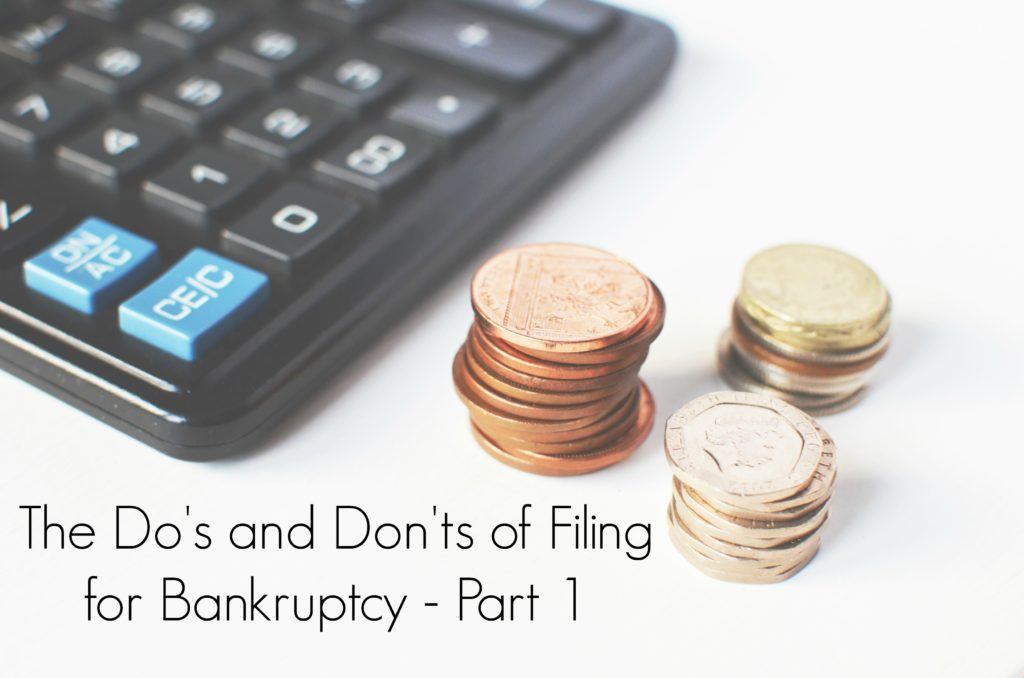Filing for bankruptcy can be stressful. As an experienced bankruptcy attorney I will help guide you through the process so that you can discharge debt and breathe again. To help do that I have created a list of the do’s and don’ts of bankruptcy. This list will be broken into two separate blog posts. Our first blog post will cover what not to do when filing for bankruptcy and later this month we will follow up with our blog about the do’s of filing.
Here is a list of what not to do when filing for bankruptcy:
- Use your credit cards or take cash advances. Using credit cards or taking cash advances within 90 days of filing for bankruptcy may delay your filing and you may be required to pay that money back.
- Hide or leave assets off of your bankruptcy papers. If you do not list an asset, you run the risk of losing it. In almost every case, our clients keep all of their assets while erasing their debts. Issues with assets are much better addressed before a case is filed. A good bankruptcy attorney will help you avoid issues in the first place.
- Give or transfer property or assets to anyone. Transferring (giving) property, assets, or anything of value to anyone else during this time is a bad idea. Doing this may subject them to a lawsuit to give the property/asset back or pay its value back.
- Pay money to any family members or friends for any reason. The same goes for paying money to family or friends. This can cause your family and friends to be sued to pay the money back.
- File a bankruptcy if you are about to receive a large tax refund or inheritance. This must be discussed with your attorney before a bankruptcy is filed.
- Pay more than $600 on any past due bill.
- Cash out any retirement plans, IRAs or 401(k). The funds in these accounts are usually protected from creditors. Any money taken out of these accounts loses that protection. You can file bankruptcy and still keep all of the funds in your retirement accounts.
- Take out a second mortgage or tap into an equity line of credit on your home to pay debts. You want to file a bankruptcy and keep your home. If you take out a second mortgage or line of credit, you may be putting your house at risk.
- Gamble.
- Deposit money in your family’s bank accounts.
- Save a credit card with a balance for after your bankruptcy. The credit card company will likely close your account anyway, just after you make a payment.
- Borrow money from friends or family.
- Misrepresent any facts to me, the trustee or to the court. Bankruptcy is a great opportunity to get your financial life back on track. The Court wants to help honest people. There is little patience for those are not.
- Talk to creditors. Let me correspond with your creditors from here on out.
- Allow anyone to give you property of significant value prior to the filing of your bankruptcy case.
- Pay off balances early on secured loans (loans for which there is collateral, i.e. car loans, mortgages, etc.)
- Conceal relevant information about your finances from me. It is important to be completely open and honest with me about everything. When we file your bankruptcy case we want you to be a “face in the crowd” and not someone looking to game the system.
One of the first things that you should do when you plan on filing for bankruptcy is to meet with an experienced attorney. Schedule an appointment today and I will help you navigate the bankruptcy process in NJ. There is life after bankruptcy and it starts here.

